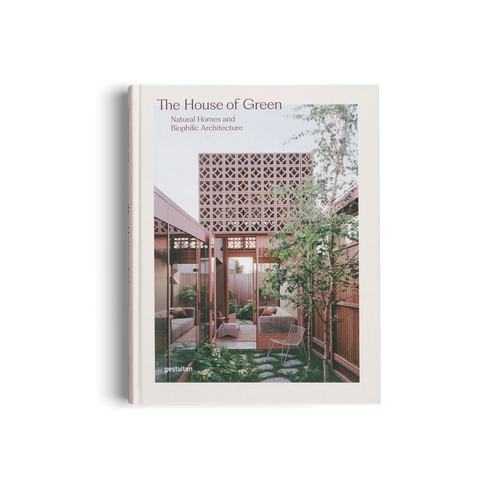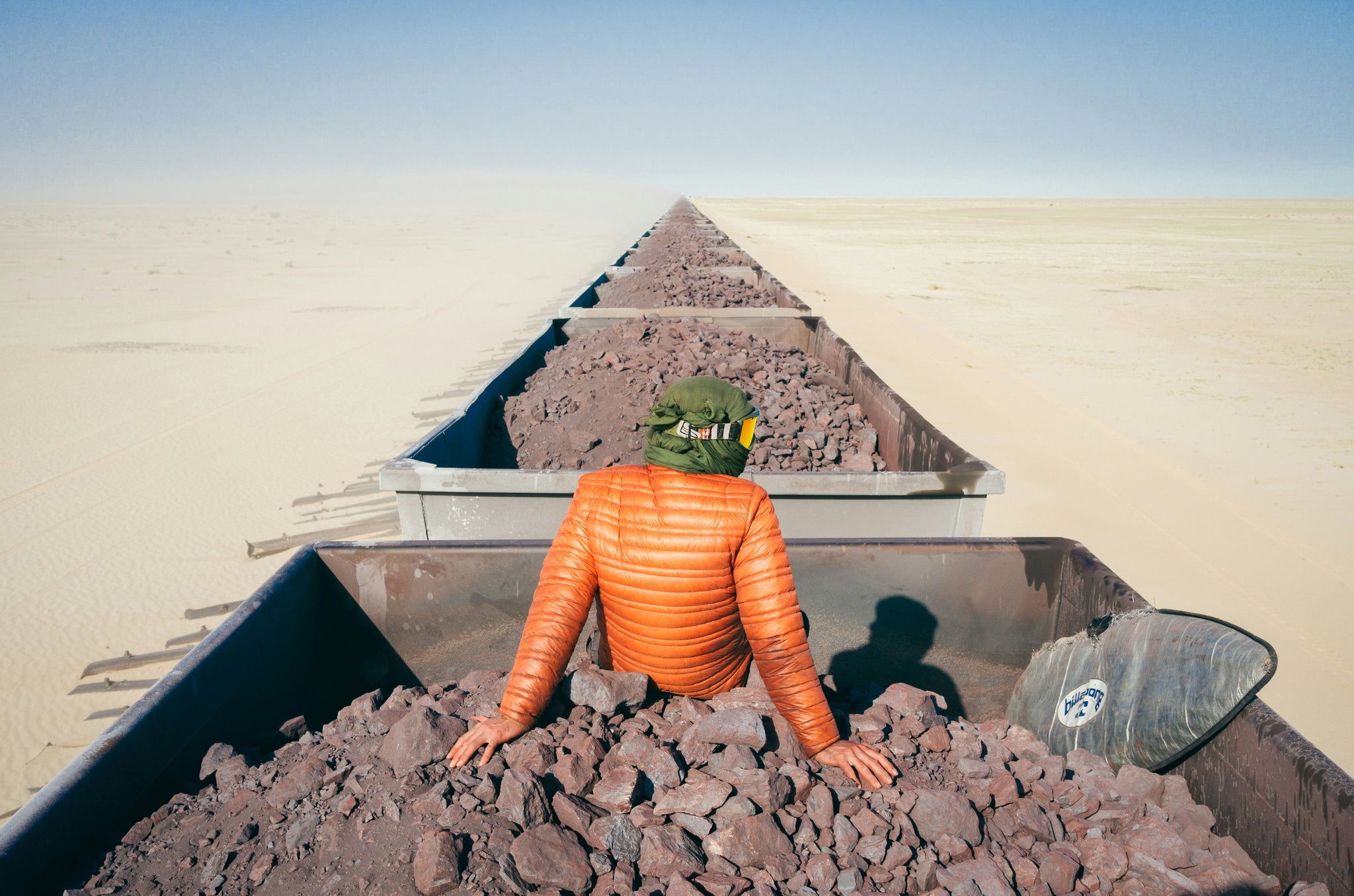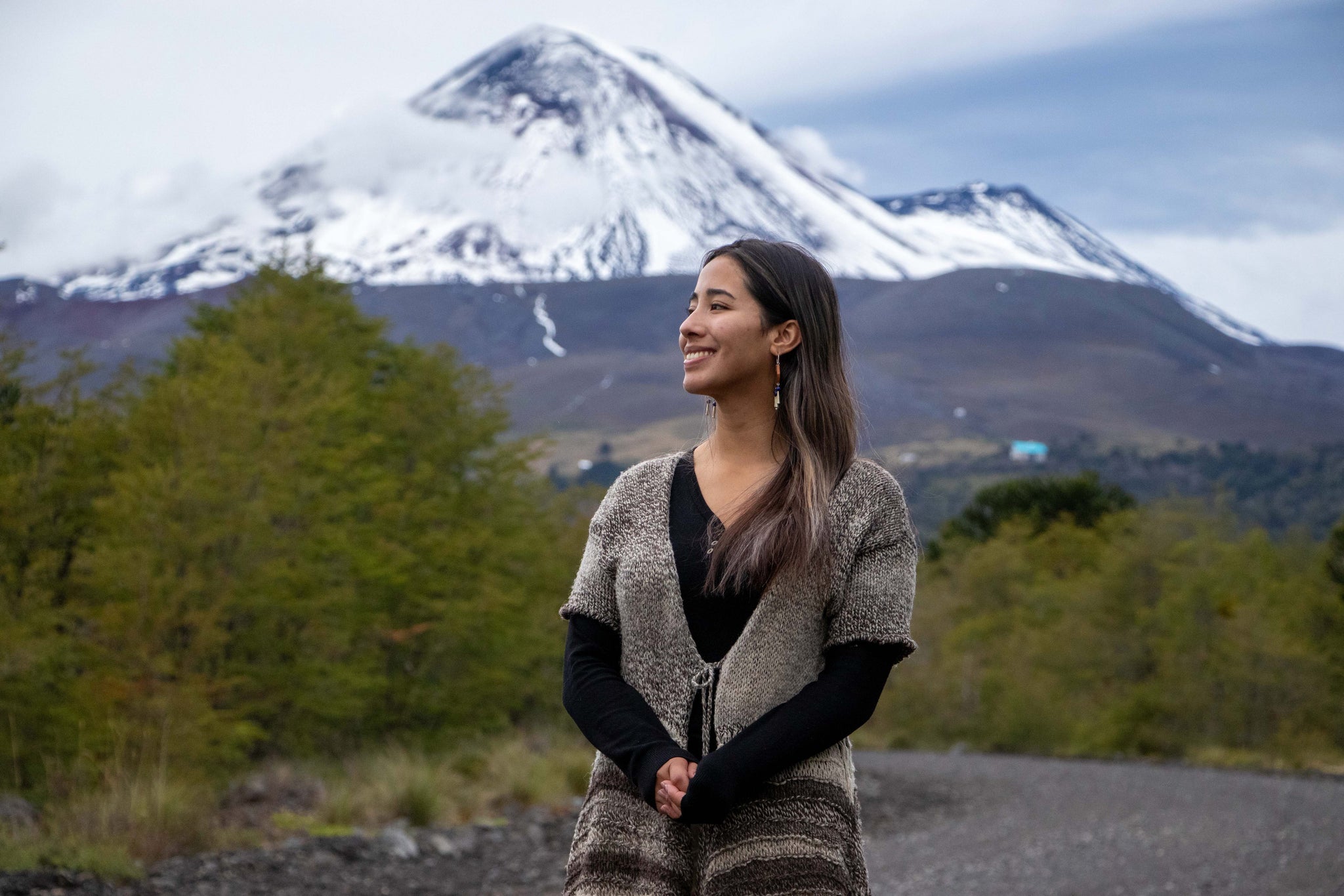
06/2019 architecture & interior Escape travel
From Pritzker Prize-winning Japanese architect Tadao Ando, Casa Wabi is a sprawling compound in Mexico that feeds off the natural environment to fuel visiting artists and travelers. Nestled within the Oaxacan landscape, this art foundation residence tells a unique story about community and the quest for creative expression within nature.
Despite its serene seclusion on a quiet beach between the Pacific Coast and the Sierra Madres del Sur mountains, Casa Wabi was designed for inspiration and creativity.
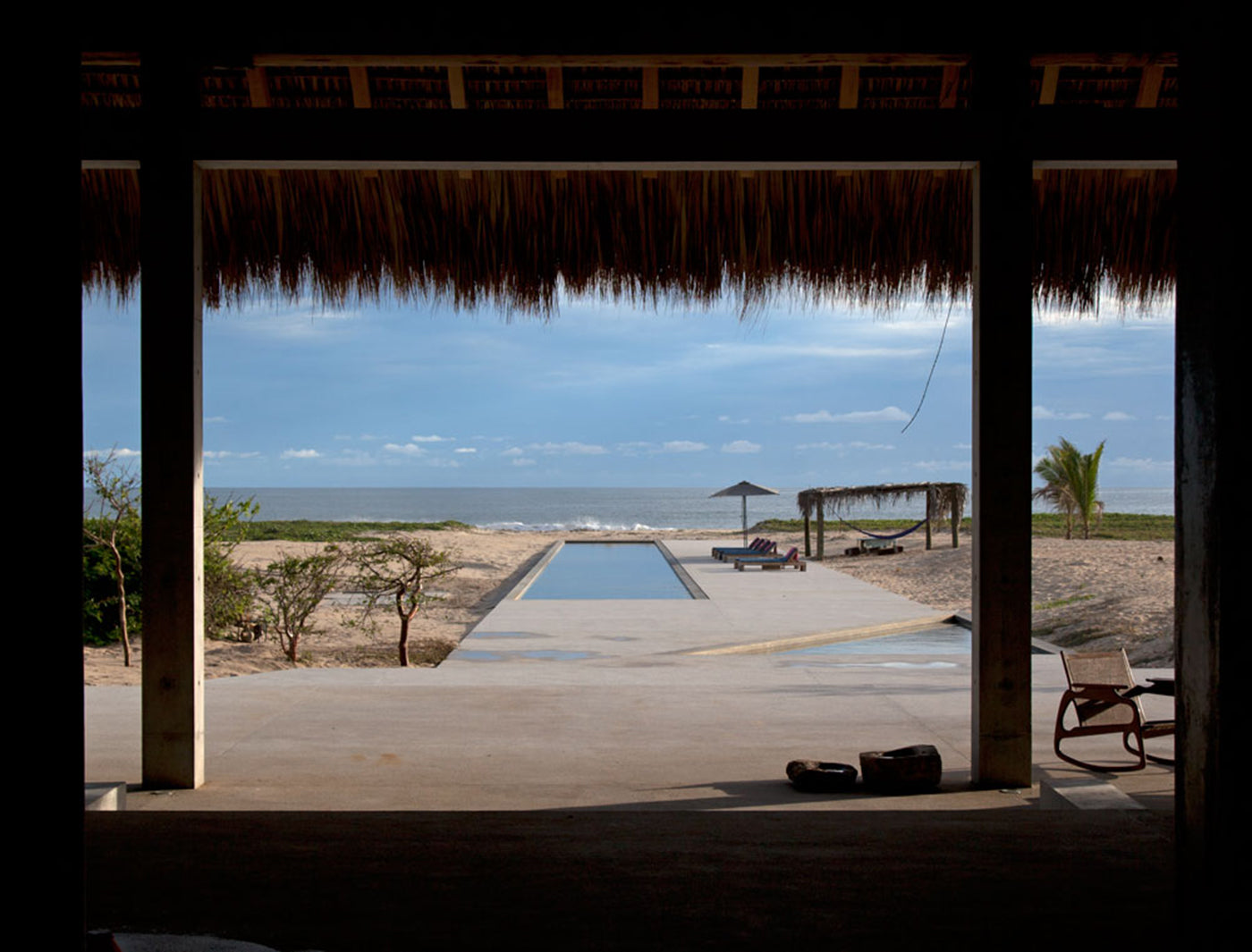
Casa Wabi is an arts charity established by Mexican artist Bosco Sodi and directed by Patricia Martin. (Photo: Edmund Sumner)
The center is a multicultural organization for artists to find refuge, hone their craft, and work together in a motivating environment. Residents develop their art through multidisciplinary practices with one another and local communities. The foundation invites artists who are particularly interested in the ways their work can bring about social benefits.
As a communal space in practice, Casa Wabi itself was built through a collaboration of eight different architects joining forces to create something extraordinary.
With Tadao Ando at the helm, winner of the Pritzker Architecture Prize in 1995, six separate sites were created clustering around the main central complex. The structures are all connected by soaring pavilions and promenades, featuring thatched rooves, brick walls, and cement walkways.
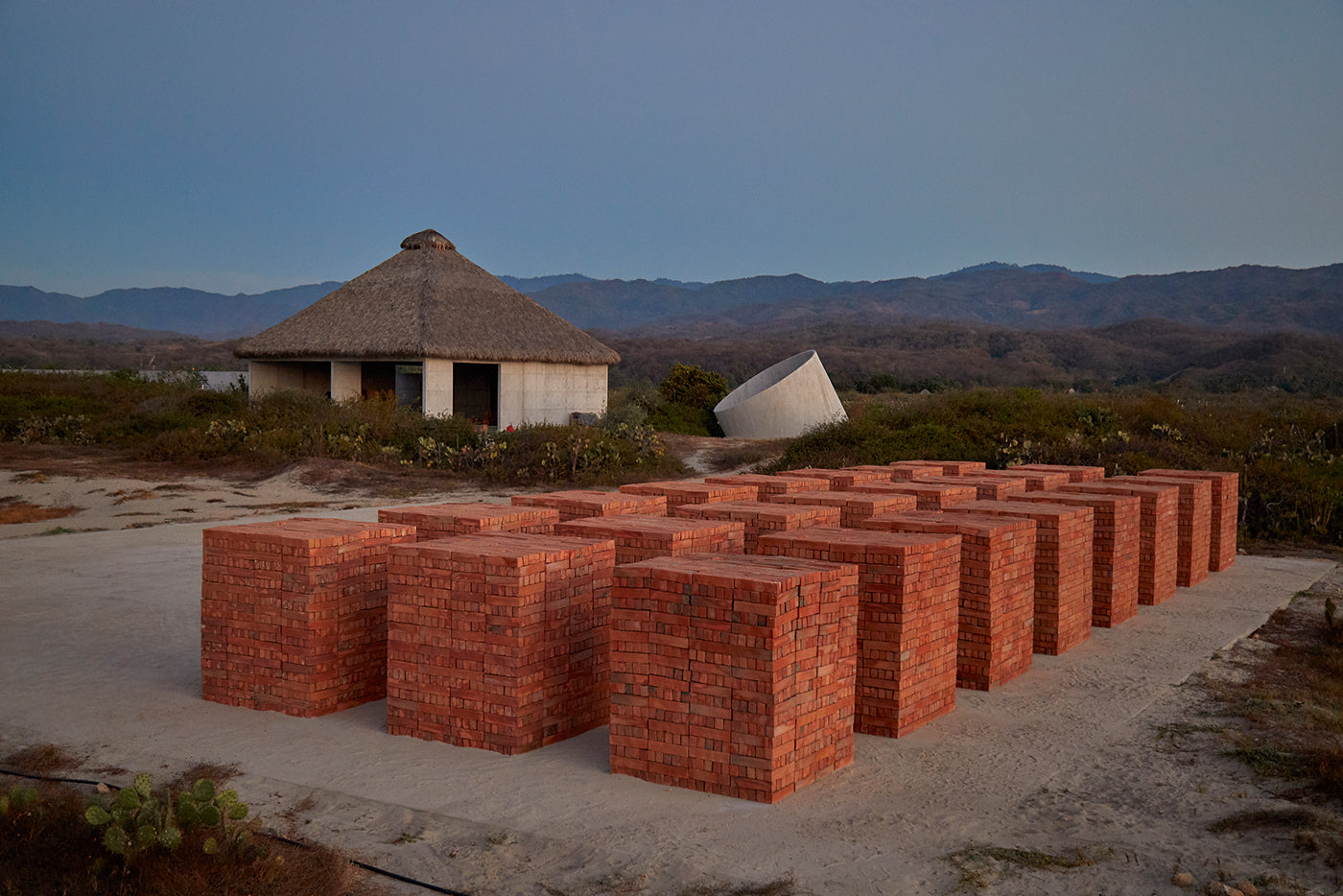
There is not a single pane of glass anywhere around the site, and the only mechanical ventilation installed is in the gallery, Tadao wanted the space to feel connected with nature so removed glass. (Photo: Edmund Sumner)
Ando was keen on Casa Wabi’s design achieving two core imperatives. The first was tapping into its surrounding natural environment, by stripping away frills and using earthy materials. He also wanted to enforce the residence’s goal of connecting artists. Each element of Casa Wabi’s design is carefully considered to facilitate free-flowing thought and encourage creative connections between its residents. The bare-bones neutrality of its concrete composition, for example, creates a calm atmosphere free of distractions.
Communal spaces for artists to gather were included too, like the shared kitchen, screening room, and the grand living and dining room. A vast wooden dining bench is placed in its center, beckoning travelers and artists to come together for shared meals and ideas.
The architecture and natural surroundings of Casa Wabi left an indelible mark on Dutch artist Anouk Kruithof, who was a resident in 2018 whilst based in Mexico City. She used the environment of the venue as inspiration to construct a community project for local fifth graders where they built piñatas based on natural elements found on the Casa Wabi grounds.
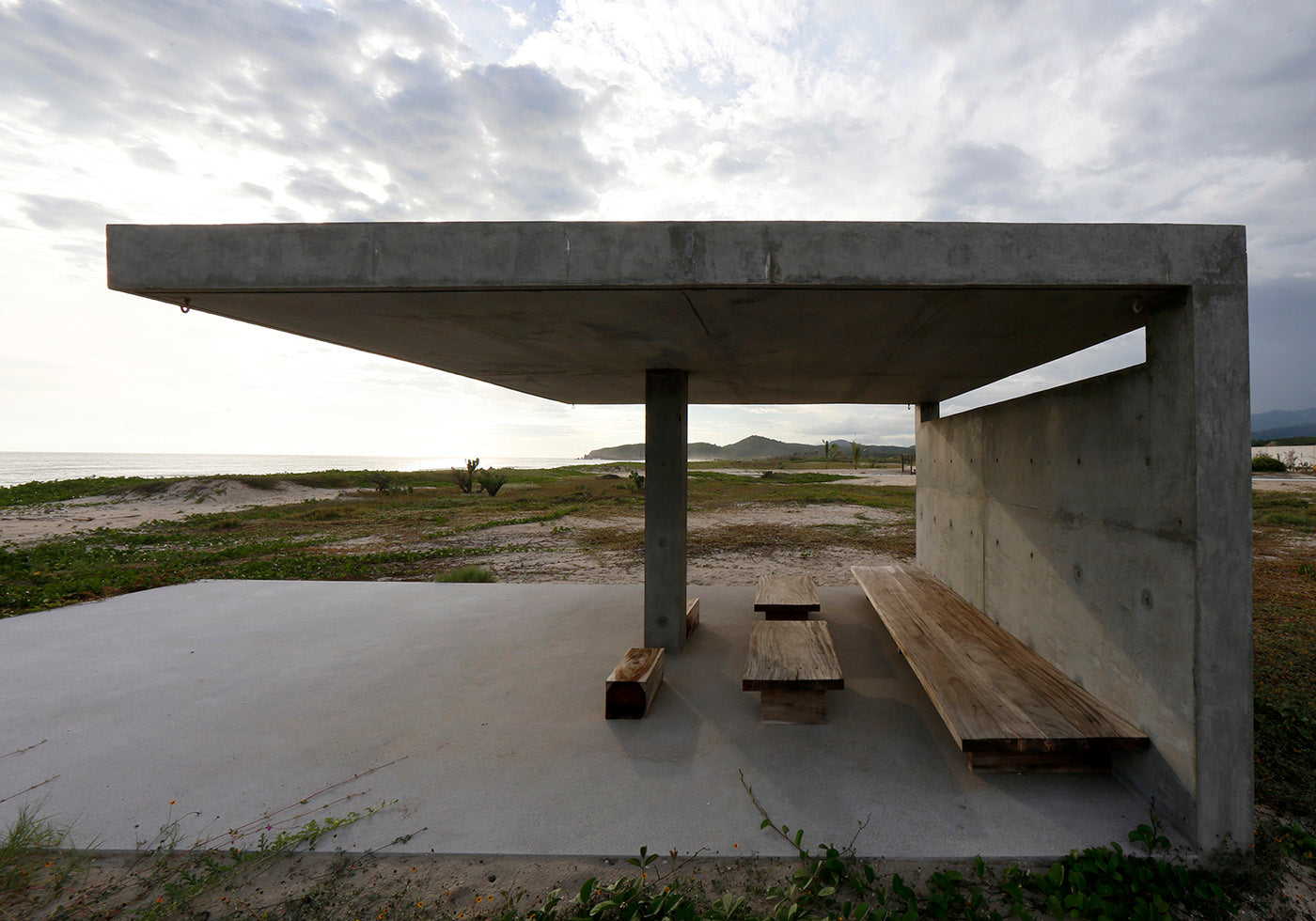
Casa Wabi is an interdisciplinary project whose mission is to promote the exchange of ideas, fostering an open and constructive dialogue between national and international artists in a variety of practices and disciplines. (Photo: Edmund Sumner)
The long-held Mexican tradition of piñatas has been radically commercialized, so it was important for Kruithof to share the power of personalized, handmade piñatas with the local youth. “The children designed their own piñatas in relation to finding object collections from nature, picked up during walks in and around Casa Wabi, mixed with personal collections of meaningful objects or photos brought from their homes,” she says.
While most of the artists’ practices were private, the communal aspect of the residency was helpful for peer critiques. “We had a group with very different practices,” Kruithof says. “Everyone did his or her thing and shared the work and projects with each other by talking and showing. We did presentations of our work to each other with the projector in the cinema of Casa Wabi to get to know each other’s practices.”
Casa Wabi's influence has carried over into her present-day artistic practice. She’s currently cultivating a more 'green practice' for herself, making art from reused materials that don’t pollute the environment. She says the natural environment of Casa Wabi “influenced me in the way I want to make my artwork in the future, and it’s a good thing to be more aware. Art practices pollute in various ways, something that isn't necessary. We can find more sustainable and ecological ways to produce art too, and now is the time.”

Japanese architect Tadao Ando designed the concrete walls to split the interior into two halves, with reception spaces on the north side and living areas to the south. (Photo: Edmund Sumner)
Casa Wabi recently opened its doors to all travelers interested in getting a peek inside a hub of idea-sharing. Renting is available through Boutique Homes, with proceeds going directly to furthering the foundation’s community programs.
Tadao Ando's vision has spurred the creative spark of dozens of artists that explored the Mexican foundation, discover a selection of our Travel titles to help spark some new ideas.


